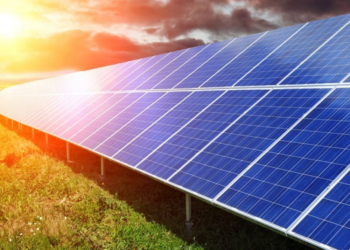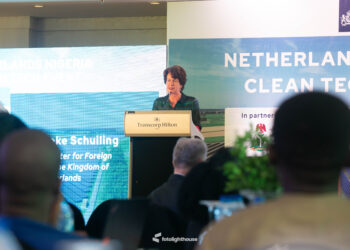Diageo, the owner of Guinness Nigeria, said on Monday that it would inject $219 million (£180 million) into sustainability projects (renewable energy and water recycling systems) at seven of its African breweries.
The London-based company revealed that investment would represent its largest green investment in a decade, aimed at reducing carbon footprint.
The details:The Chief Executive of Diageo, Ivan Menezes, said in a statement “we believe this is one of the biggest single investments in addressing climate change issues across multiple sub-Saharan markets. It demonstrates the strength of our commitment to minimise our environmental impact and crucially take action.”
The Diageo Chief Executive further disclosed that £50 million would be provided in advance to kick-off the projects spanning 11 breweries in Nigeria, Kenya, Tanzania, Seychelles, Uganda, South Africa and Ghana.
[READ MORE: Nigeria’s power sector remains in failing state]
The company noted that biomass boilers using sustainable fuels would be installed at three breweries in Kenya and Uganda to replace the dirty sources of energy production, while bamboo, wood chip and rice husk would create steam power, cutting emissions and creating jobs alongside local farmers who provide raw materials.
Meanwhile, Menezes, disclosed that solar panels would be rolled out to facilities in 6 countries with Kenya and Ghana as the starting points, as they will produce up to one-fifth of the breweries energy needs, while Nigeria, Kenya and Uganda would save 2 billion cubic litres of water yearly from purification, recovery and reuse of facilities.
Diageo, the alcohol brewer, which produces the likes of Guinness stout, Smirnoff vodka, Baileys liqueur, plans to reduce its carbon emissions from direct operations by mid-2020.
- Diageo operates 12 breweries across the continent. Note that Africa produces 13% of its global sales and is the largest region for beer by volume.
- The Kenyan beer, Tusker, is bottled by a plant that operates on 100% renewable energy.
What this means: The move by Diageo to pump funds into the continent is in a bid to reduce the negative impact of greenhouse gas emissions on the economy. This is believed to be a move in the right direction.
- Studies have shown that increasing CO2 emissions are believed to result in irreversible changes in the global climate and the global environment.
- The consequences are hard to predict but are believed to impose a tremendous economic cost of mitigation and adaptation, if not catastrophic effects on the human future.
- Despite the benefits of Green Houses, the progress made by Nigeria is little compared to advanced nations where Green Houses and allied concepts are very popular.
[READ ALSO: Nigeria’s mining sector to receive $30 million investment]






















